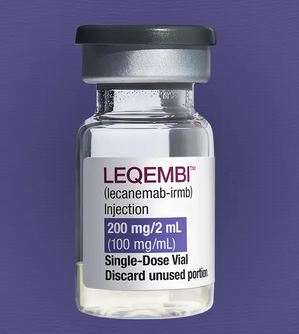Health Canada has approved the country’s first-ever drug designed to slow the progression of Alzheimer’s disease.
On Monday, the agency announced its approval of lecanemab, sold under the brand name Leqembi – a treatment that’s already been approved in several other countries, including the U.S., Japan, China, Mexico, and the U.K.
The drug is also under review in more than a dozen others.
Lecanemab is a type of monoclonal antibody medication intended for people with mild dementia caused by Alzheimer’s disease.
It’s a “Big Deal”

Clinical trials suggest that lecanemab can slow the decline of memory and cognitive function in people in the early stages of the disease.
The drug works by attacking amyloid plaques – sticky protein buildups in the brain that are strongly linked to Alzheimer’s.
Dr. Sharon Cohen, a neurologist, said that until now, treatments have only focused on managing symptoms that appear later on. By clearing amyloids and treating the disease earlier, she explained, patients may be able to maintain milder symptoms and preserve independence for longer.
Who Is It Approved For?

That restriction is in place because people with the APOE4 gene are more likely to experience side effects while taking lecanemab.
According to the Alzheimer Society of Canada, research has shown that carriers of the gene face a higher risk of brain swelling and small brain bleeds when treated with the drug.
To determine whether they qualify for treatment, the Society recommends that individuals get tested for the APOE4 gene. However, it notes that access to testing can be limited in some regions, which could lead to delays in starting treatment.
When Will Lecanemab Be Available?

Those with private insurance, however, may be able to access the treatment sooner.
The Alzheimer Society of Canada also nopted that lecanemab is given intravenously and requires ongoing monitoring through regular MRIs to ensure safety.
That could pose accessibility challenges for people living outside major urban centres, where specialized medical facilities are harder to reach.








